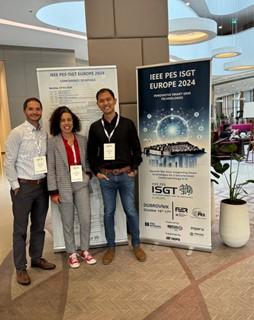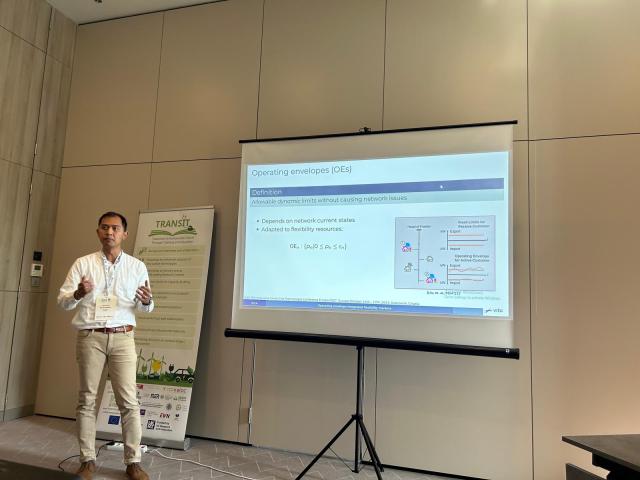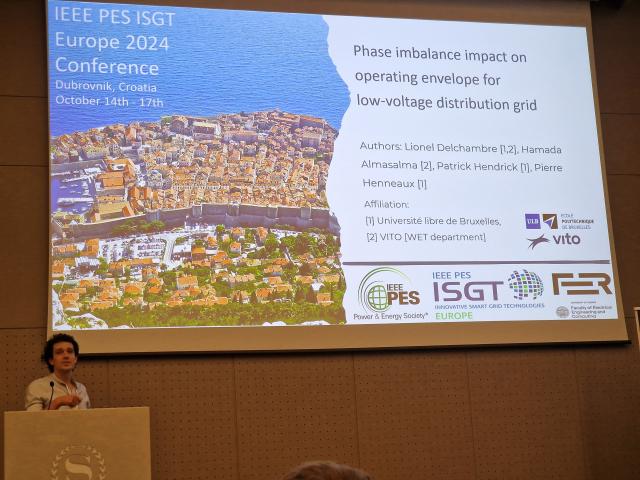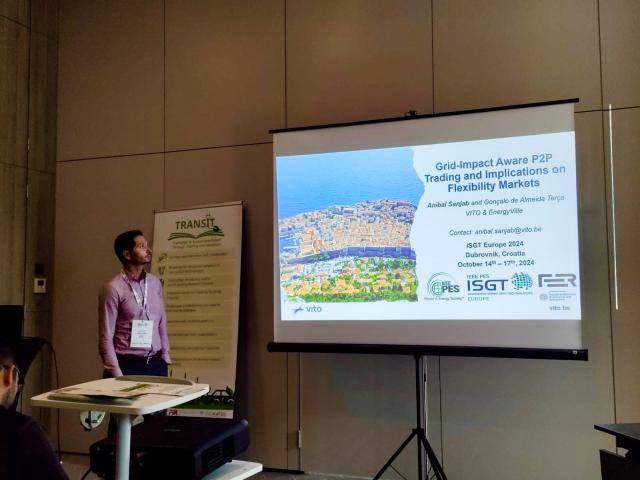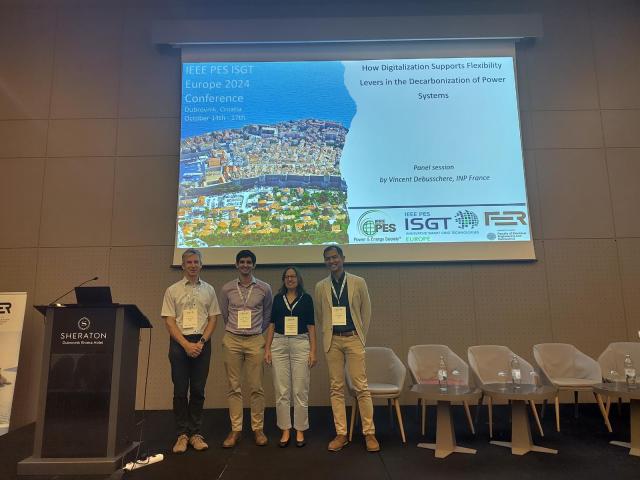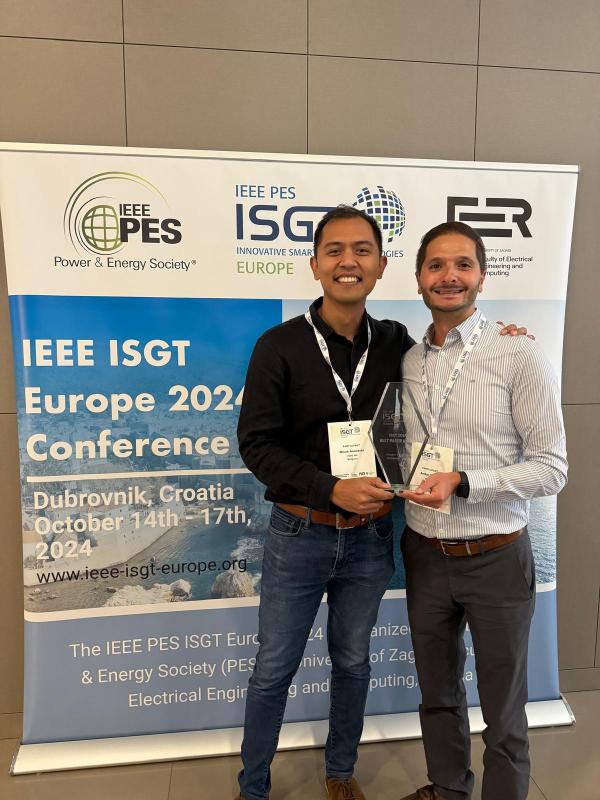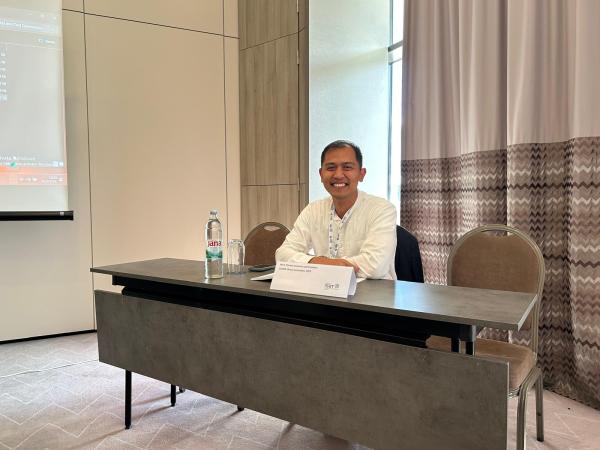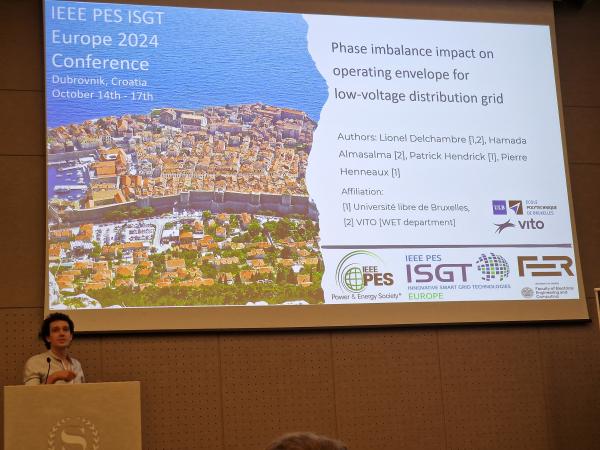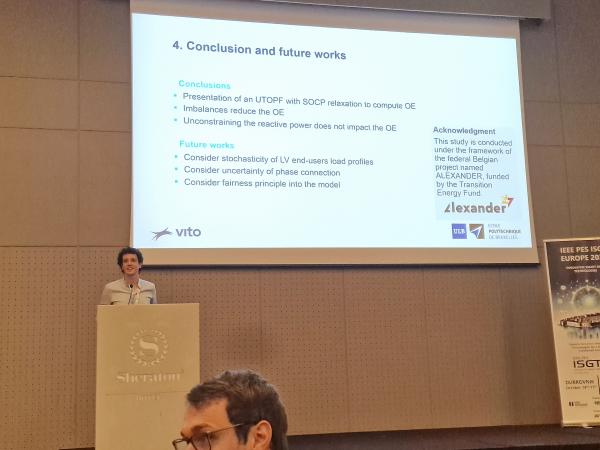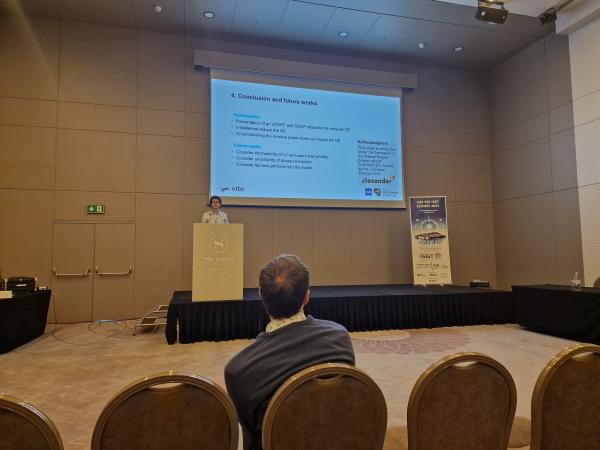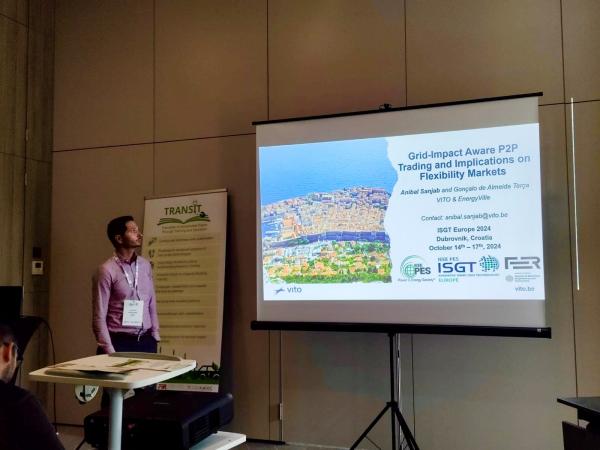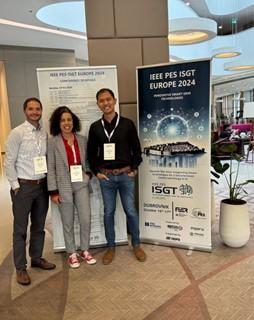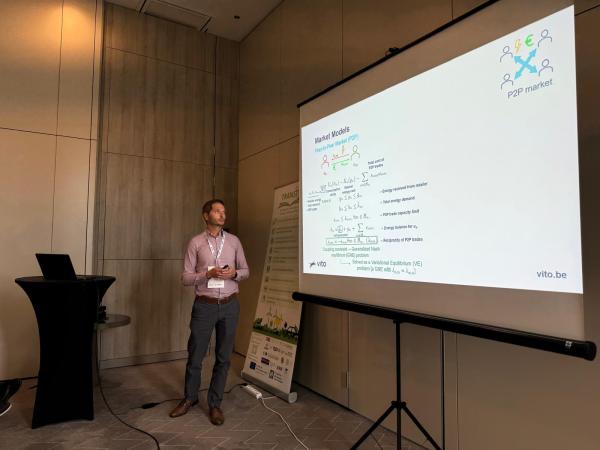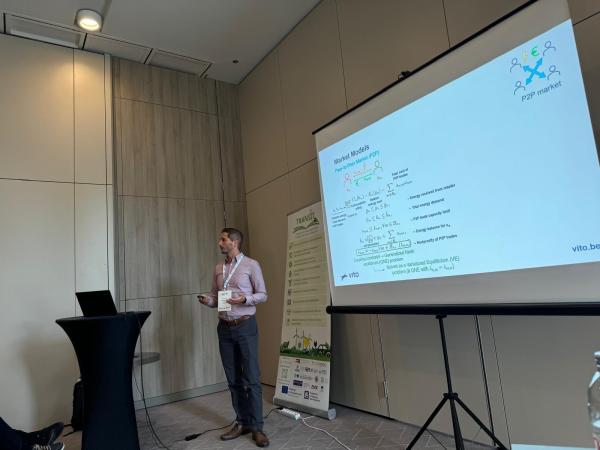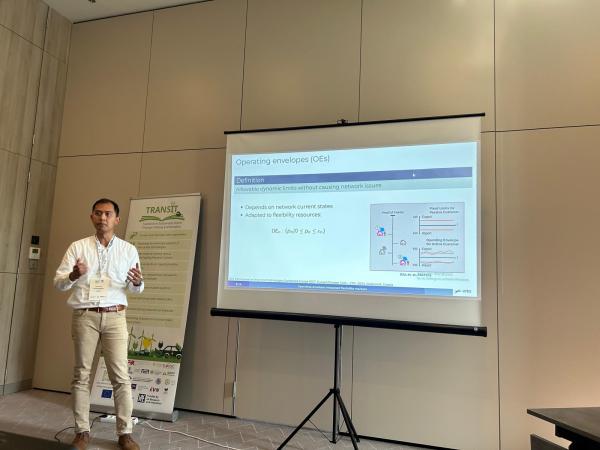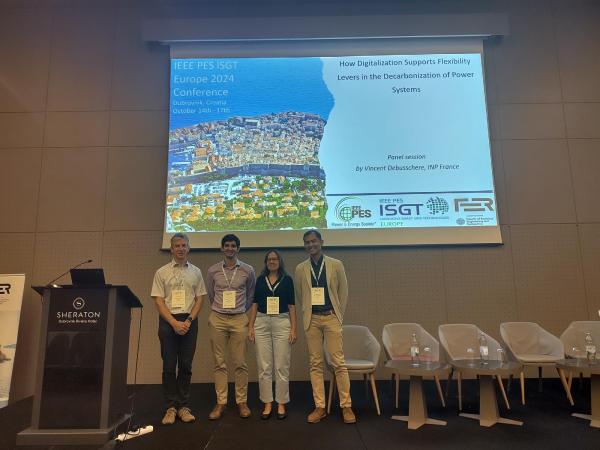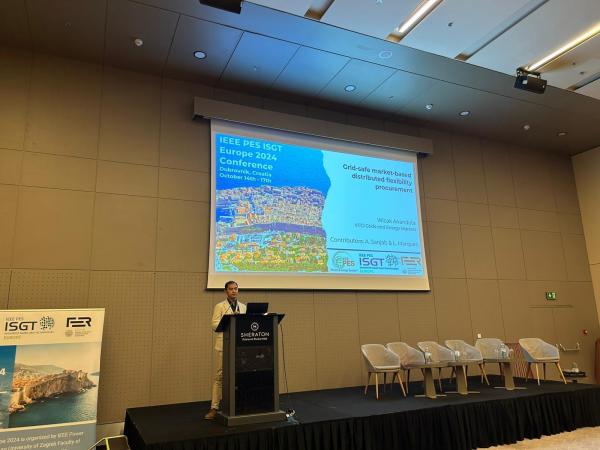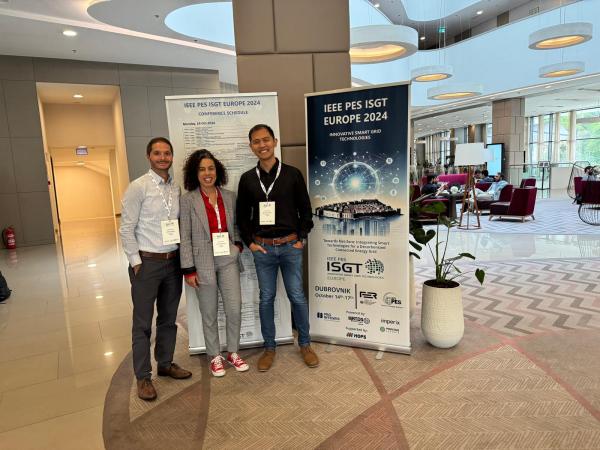On the 14th-17th of October 2024, the IEEE PES Innovative Smart Grid Technologies (ISGT) Europe conference was held in Dubrovnik, Croatia. This is a flagship IEEE PES conference with keynote speakers, plenaries, and more than 400 research papers in the topics related to smart grids.
In this conference, some research results of the ETF Alexander project were presented. See below for more information on the papers.
Wicak Ananduta (VITO) presented a paper titled “Operating envelopes for the grid-constrained use of distributed flexibility in balancing markets”, authored by A. Kaushal, W. Ananduta, L. Marques, T. Cuypers, and A. Sanjab. This work discusses how distributed flexibility can safely participate in balancing markets through the concept of operating envelopes. Two optimization-based operating envelope calculation methods were extensively investigated. This study found that grid safety of distribution systems can be ensured if operating envelopes of distributed flexibility resources are integrated into the balancing market clearing mechanism. Interestingly, this can be achieved if the operating envelopes of upward resources are calculated separately from those of downward resources.
Another paper on the topic of operating envelopes titled “Phase imbalance impact on operating envelope for low-voltage distribution grid” was presented by Lionel Delchambre (ULB). This paper, co-authored by Patrick Hendrick, Pierre Henneaux, and Hamada Almasama, discusses how phase imbalances influence operating envelopes. Indeed, LV end-users may be unevenly connected to phases without DSO being aware of it. The paper presents an innovative method to compute OE while considering phase imbalances.
Furthermore, Anibal Sanjab (VITO) presented the work titled “Grid-Impact Aware P2P Trading and Implications on Flexibility Markets”, which is co-authored with Gonçalo De Almeida Terça. The paper addressed the impacts that peer-to-peer (P2P) markets (a form of decentralized local energy exchanges in energy communities) can have on the safe operation of the distribution grids. A decentralized P2P market design – modelled as a generalized Nash equilibrium game – is adapted in this work, while the grid impact of the physical delivery of the P2P-traded energy is quantified using closed-form expressions, allowing the computation of the impacts of P2P trading on the power flows in the grid and the flexibility needs of the DSO. The characterization of this impact allowed then the work to introduce preventive and corrective control measures that the DSO can introduce to enable (largely-free) P2P trading while safe-guarding the grid.
Finally, Wicak Ananduta also participated in a Special Session of “How Digitalization Supports Flexibility Levers in the Decarbonization of Power Systems”, where together with three other panellists from KU Leuven, Stedin (a Dutch Distribution System Operator), and Schneider Electric France, discuss the importance of digitalization in different aspects flexibility utilization. He presented the work on grid-safe bid forwarding methods in sequential flexibility markets, which allows grid-safe utilization of distributed flexibility across multiple flexibility markets

